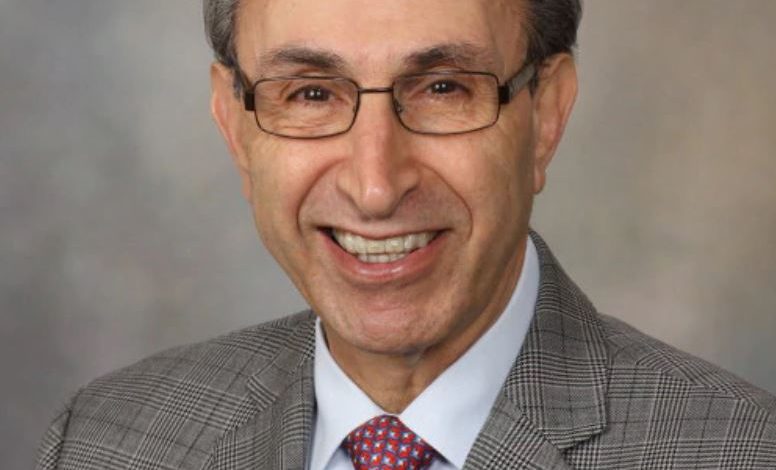Cardiologist: Early recognition, prevention, and detection are the ways to deal with cardiac diseases

Samar Yahya
Riyadh – ![]() : “Uncontrolled and unchecked, obesity can have very bad outcomes, leading to several chronic diseases including diabetes, heart disease, stroke, and even cancer. Obese people are also at higher risk than somebody else who is healthier in terms of fighting COVID-19. In the US, obesity is a pandemic, affecting up to 40% of the population.” said Dr. Joseph Maalouf consultant cardiologist Department of Cardiovascular Medicine and the incoming chair of the Division of Cardiology at Sheikh Shakhbout Medical City (SSMC) in Abu Dhabi during a webinar on Monday.
: “Uncontrolled and unchecked, obesity can have very bad outcomes, leading to several chronic diseases including diabetes, heart disease, stroke, and even cancer. Obese people are also at higher risk than somebody else who is healthier in terms of fighting COVID-19. In the US, obesity is a pandemic, affecting up to 40% of the population.” said Dr. Joseph Maalouf consultant cardiologist Department of Cardiovascular Medicine and the incoming chair of the Division of Cardiology at Sheikh Shakhbout Medical City (SSMC) in Abu Dhabi during a webinar on Monday.
Speaking on the causes of obesity, Dr. Maalouf stated that some diseases can lead to obesity, for example, the malfunction in the thyroid gland and other hormonal related causes. However, the major cause of obesity today is the current unhealthy lifestyle i.e. type of food, increase in caloric intake, absence of any physical activity, etc.
On the consequences of obesity, Dr. Maalouf explained that obesity can cause heart failure, as well as blockages in the coronary arteries leading to blood clots in the heart that cause stroke, or blood clots in the legs that go to the lungs. Additionally, sleep apnea; where people tend to snore at night due to the temporary cessation of breathing, is another consequence. People that suffer from sleep apnea typically experience fatigue and exhaustion. Most importantly, however, diabetes is also a major outcome of obesity.
For Dr. Maalouf, treatment starts with enhancing your way of living and adopting a healthy lifestyle; be it in your diet, your physical activity, or even your mental health. The Mediterranean diet, for example is a well-balanced and sustainable diet. It is important to note that changes diet must also be part of a wider lifestyle change. Other means of treatment that require medical involvement include drug therapy if obesity remains resistant, as well as surgical options.
People living with obesity are not only at an increased risk of having a stroke but also COVID-19 as well. Dr. Maalouf also said that obesity can reduce one’s ability to combat diseases, such as COVID-19.
In terms of cholesterol, Dr. Maalouf stated that the liver is the main cholesterol factory, whereas food contributes to only 20-25% of total blood cholesterol. This said, it is important to track your diet, particularly if the liver is producing too much bad cholesterol and the affected person has coronary artery disease or other vascular diseases, or is prone these diseases. Cholesterol lowering drugs may be needed despite reasonable attempts to control cholesterol intake, however. Dr. Maalouf pointed out that in the late 1950s to early 1960s, a lot of concern was raised regarding natural cholesterol, such as that found in eggs, and a concerted effort was made to promote processed foods. However, with time it was realized that processed foods are much more harmful than natural cholesterol.
Dr. Maalouf suggests visiting websites of the American Heart Association, the American College of Cardiology or the European Society of Cardiology, or any of the reputable institution’s websites to access credible information
Dr. Maalouf said that heart disease remains the leading cause of death in the world, and highlighted the lack of public awareness in the Middle East and the dangers of smoking, be it cigarettes, cigars, or shisha. “Whether you have a family history or not, the best way to prevent heart disease is by adopting a healthy lifestyle. For people who have a family history my advice to them is to take more preventive measures i.e. don’t smoke, have healthy diets, exercise, etc. There is also the importance of having regular testing, such as stress tests, as early detection means early prevention.”
“The bottom line is that we need to take care of our bodies; early recognition, prevention, and detection are the ways to deal with cardiac diseases, especially if there is a family history.”
Apart from the toxic lifestyles and diets, Dr Maalouf also mentioned other risk factors “There’s always a genetic component. Ultimately, we are all defined by our genome which is the blueprint for our life, and therefore, people with slow metabolism are more prone to becoming overweight. Finally, it is important to note that a person’s biological age is best determined by the health of the blood vessels (referred to as vascular age) rather than one’s actual age (chronological age). In other words, based on the health of a person’s blood vessels, a 40 year old may appear much older than their actual age and a 70 year old may appear much younger than their stated age.




